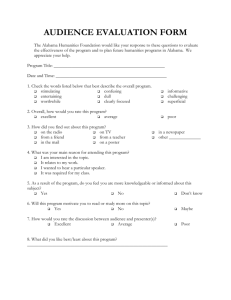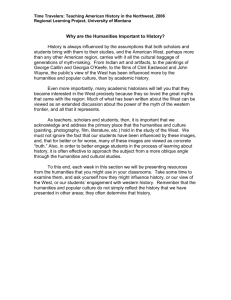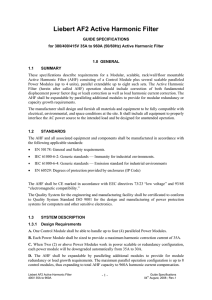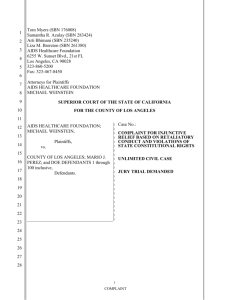- Alabama Humanities Foundation
advertisement
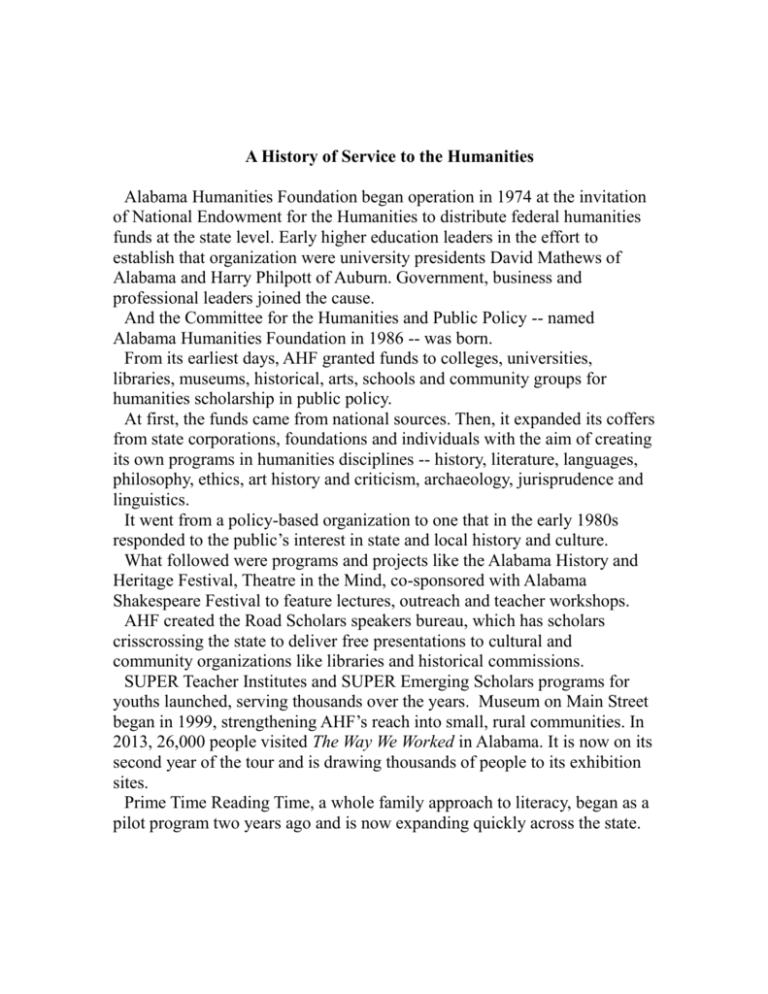
A History of Service to the Humanities Alabama Humanities Foundation began operation in 1974 at the invitation of National Endowment for the Humanities to distribute federal humanities funds at the state level. Early higher education leaders in the effort to establish that organization were university presidents David Mathews of Alabama and Harry Philpott of Auburn. Government, business and professional leaders joined the cause. And the Committee for the Humanities and Public Policy -- named Alabama Humanities Foundation in 1986 -- was born. From its earliest days, AHF granted funds to colleges, universities, libraries, museums, historical, arts, schools and community groups for humanities scholarship in public policy. At first, the funds came from national sources. Then, it expanded its coffers from state corporations, foundations and individuals with the aim of creating its own programs in humanities disciplines -- history, literature, languages, philosophy, ethics, art history and criticism, archaeology, jurisprudence and linguistics. It went from a policy-based organization to one that in the early 1980s responded to the public’s interest in state and local history and culture. What followed were programs and projects like the Alabama History and Heritage Festival, Theatre in the Mind, co-sponsored with Alabama Shakespeare Festival to feature lectures, outreach and teacher workshops. AHF created the Road Scholars speakers bureau, which has scholars crisscrossing the state to deliver free presentations to cultural and community organizations like libraries and historical commissions. SUPER Teacher Institutes and SUPER Emerging Scholars programs for youths launched, serving thousands over the years. Museum on Main Street began in 1999, strengthening AHF’s reach into small, rural communities. In 2013, 26,000 people visited The Way We Worked in Alabama. It is now on its second year of the tour and is drawing thousands of people to its exhibition sites. Prime Time Reading Time, a whole family approach to literacy, began as a pilot program two years ago and is now expanding quickly across the state. In addition to exhibitions, institutes, workshops, speakers bureau and other cultural programs, AHF has been a huge benefactor of documentary films, including the current Ken Burns’ The Roosevelts: An Intimate History. AHF began coordinating the Jenice Riley Memorial Scholarship in 2003, which is named for the late daughter of Gov. Bob and Patsy Riley. It rewards innovative teaching in elementary classrooms throughout the state. In 1989, AHF created the Alabama Humanities Awards Luncheon, and it has evolved into a major annual event attracting upwards of 400 people and bringing in nationally noted speakers, like E.O. Wilson, Winston Groom, Charles Kuralt and Rick Bragg. Honorees have been just as impressive: Winton Blount, Wayne Flynt, Governor Albert Brewer, Pulitzer Prize winners Harper Lee and E.O. Wilson. And the list continues to grow. On its 25th anniversary in 2014, it became the most successful luncheon in its history. As part of Standing Together, a new National Endowment for the Humanities initiative to promote understanding of the military experience and to support returning veterans, AHF is partnering with the Maine Humanities Council and 12 other state councils to offer scholar-facilitated, reading and discussion programs for veterans. AHF has piloted Literature and the Veteran Experience on the campuses of Auburn University, Troy University and The University of Alabama. The program complements the foundation’s existing work in support of our veterans, specifically the Literature and Health Care reading and discussion program offered at VA hospitals. At the heart of the program are small groups of veterans (10-12 participants) who gather twice-monthly over three months for reading and discussion. A humanities scholar who is also a veteran facilitates the sessions. Texts include novels, short fiction, poetry, letters, and personal accounts that relate to the military experience. Participants are recruited from the university and surrounding community.
